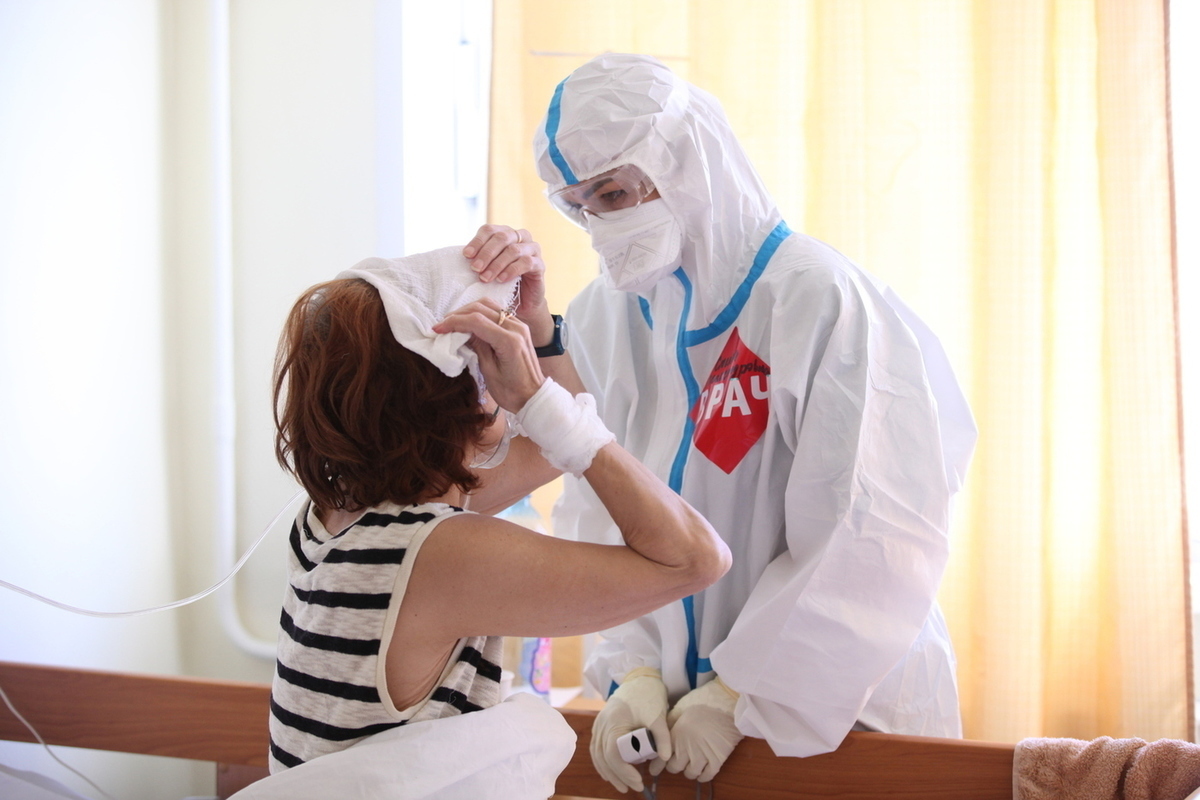There could be far more people infected with COVID-19 twice than anticipated, doctors say after a 40-year-old man was hospitalized with the coronavirus four months after his initial bout of serious illness last year.
–
According to doctors, people can become infected with COVID-19 twice and suffer two completely different attacks of the disease in just four months.
As reported Sky NewsThe warning came after evidence emerged of a man whose infections were separated by four months of symptom-free and serial negative tests for the virus.
But while a decrease in immunity may increase the risk of re-infection with the coronavirus, doctors say that a severe first infection in a second case may be followed by milder symptoms.
Previous studies have shown that re-infection is possible, but it has generally been assumed that people usually gain some kind of immunity for more than four months.
And experts covering the case in BMJ Case Reports say it’s unclear if this really represents an ongoing shedding of the virus from an initial outbreak of the virus, rather than an actual reinfection.
The study authors say: “As the COVID-19 pandemic progresses, emerging data has shown that SARS-CoV-2 may be reinfected, so that SARS-CoV-2 RNA testing is positive for an extended period of time. does not necessarily indicate persistent shedding of the virus from a previous COVID-19 infection. “
The scientists add: “If patients with severe illness develop more stable antibody levels, the duration of their protection against re-infection and, as a result, the severity of the disease, if it does occur, can be reduced. Future observations will certainly shed more light on this if this hypothesis is correct. The role of the presence or absence of antibodies after initial infection in survivors of the first episode of COVID-19 and its role in reducing the risk of re-infection with SARS-CoV-2 is not clearly defined. However, it is likely that decreased immunity or lack of antibodies after the first episode of SARS CoV-2 infection could leave another person susceptible to reinfection.
The case described by the authors concerns a man in his 40s who was admitted to hospital with a mild COVID-19 infection four months after the initial attack of severe illness in April 2020. He had well-controlled type 2 diabetes, an underactive thyroid, and obesity, known risk factors for severe COVID-19 infection.
When the man first became infected, he was rushed to the hospital with shortness of breath and a high-pitched wheezing sound caused by obstructed airflow. He developed respiratory distress and required mechanical ventilation and anticoagulants, as well as various other medications used to treat COVID-19.
During the two-month hospital stay, the patient developed a series of serious complications before being stabilized and discharged from the emergency room for rehabilitation.
In the second case, in August 2020, he tested positive for coronavirus – after four negative tests in the previous three months – and stayed in the hospital for just one day. Two weeks later, he was again admitted to the hospital, where he was held for another week.
The man insisted that he had very little contact with other people, with the exception of relatives and his immediate family, who had no symptoms and who had not recently been ill.
The authors suggested that positive test results several months apart could be related to re-infection with the virus, but added that milder symptoms a second time could be the result of residual immunity from the first severe infection.
Imperial College London immunology professor Danny Altmann told Sky News that while there were only 100 confirmed recontamination cases worldwide, his interviews with doctors showed it was “much more common than we thought.”
“Reinfection can happen quite often,” he said. Prof Altmann explained that while second attacks may be less severe due to residual antibodies, a new study in Brazil has provided worrying evidence to the contrary.
According to the expert, the study showed that 30 medical workers in the same center contracted the virus a second time, accounting for 7% of reinfection, and that they generally had worse symptoms than during the first infection. “One of them, who had fairly mild symptoms the first time, died the second time,” he said.
Prof Altmann added that it is difficult to know if such cases were the result of mutant variants of the disease or people who do not produce antibodies.
Siren’s Public Health England (PHE) report released in January found that antibodies from past coronavirus infections provided 83% protection for at least five months. However, the researchers found 44 potential COVID re-infections among 6,614 participants who had evidence of a previous infection. Another study found that 88% of people still have antibodies in their blood to fight the coronavirus six months after infection. A study of about 1,700 people was carried out by the British Biobank, whose chief researcher Professor Naomi Allen said: “Although we cannot say with certainty how [наличие антител] is related to immunity, the results show that people can be protected from subsequent infection for at least six months after natural infection. “
– .


